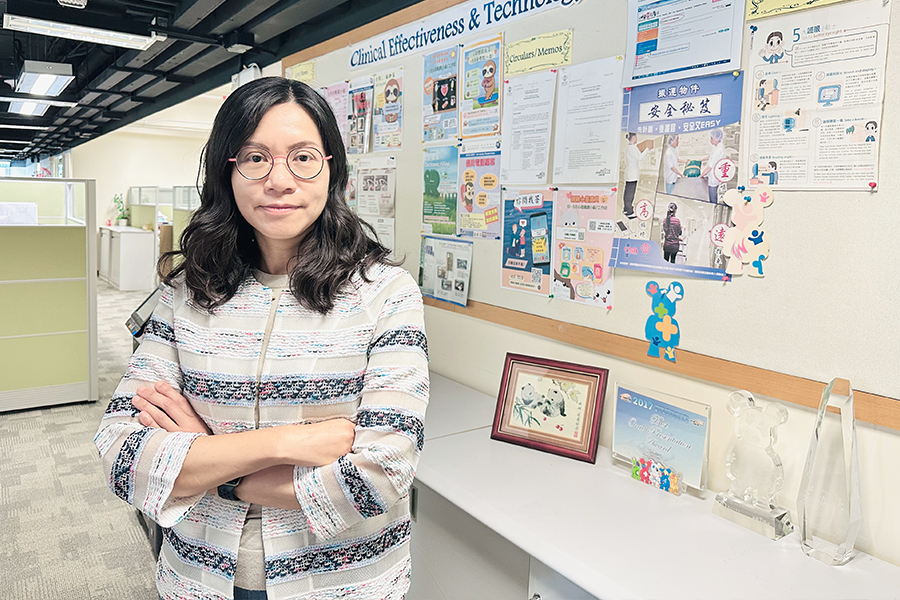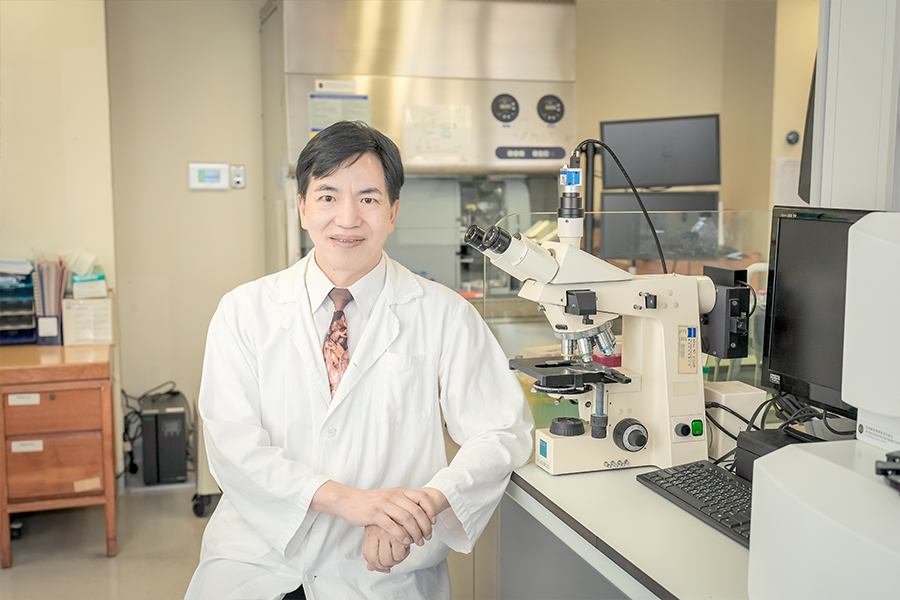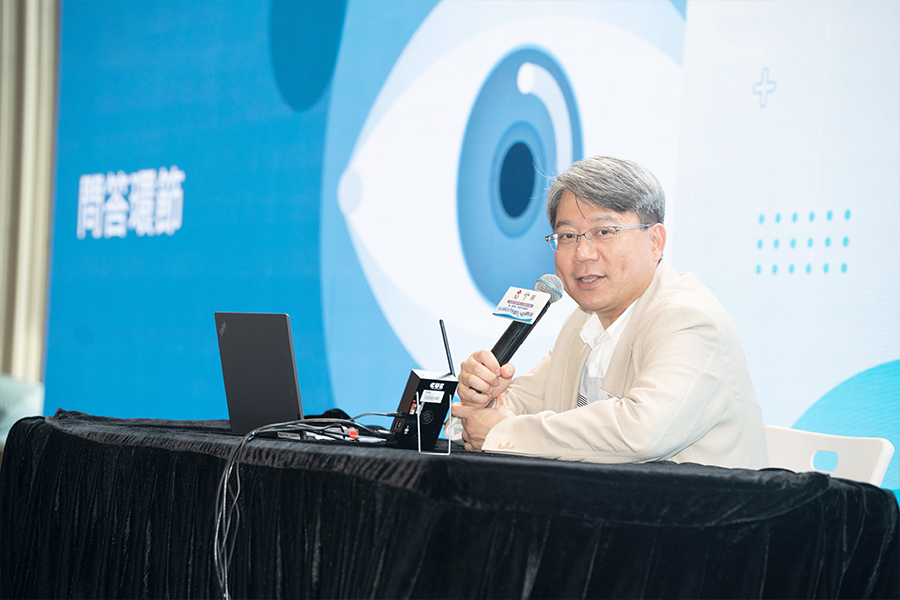Scientific research and clinical practice complement each other
 In the modern era of advanced medical science, the birth of a new drug, a new medical device or a new artificial intelligence-assisted disease diagnosis system is the fruit of the hard work of countless healthcare professionals and scientific researchers. Hospital Authority (HA) has launched five key initiatives (see table) to provide holistic support to promote clinical research and innovation, with the aim of fostering a supportive atmosphere for scientific research within the organisation and encouraging frontline clinical staff to conduct clinical research. “We hope to see more colleagues engaging in clinical research in the future, with a greater number of research projects and more academic papers being published for the benefit of patients”, says HA’s Chief Manager of Clinical Effectiveness and Technology Management Dr Venus Siu.
In the modern era of advanced medical science, the birth of a new drug, a new medical device or a new artificial intelligence-assisted disease diagnosis system is the fruit of the hard work of countless healthcare professionals and scientific researchers. Hospital Authority (HA) has launched five key initiatives (see table) to provide holistic support to promote clinical research and innovation, with the aim of fostering a supportive atmosphere for scientific research within the organisation and encouraging frontline clinical staff to conduct clinical research. “We hope to see more colleagues engaging in clinical research in the future, with a greater number of research projects and more academic papers being published for the benefit of patients”, says HA’s Chief Manager of Clinical Effectiveness and Technology Management Dr Venus Siu.
Dr Siu notes that HA has possessed unique advantages such as a large patient volume providing a vast pool of potential research subjects and topics, as well as a wealth of healthcare data, making it an ideal setting for clinical research. In the public hospitals, there is a group of unsung scientists working diligently.
Dr William Cho, Scientific Officer (Clinical Oncology) at Queen Elizabeth Hospital, has devoted himself over 30 years to clinical research. He has been named among the world’s top 2% scientists by Stanford University since 2017, and is also listed in Clarivate’s Highly Cited Researchers 2023, where only about 6,850 top scholars have received this honour among the countless scientists worldwide. Oncologists and Dr Cho have conducted research on detecting the DNA amount of Epstein-Barr virus in patients’ serum for the non-invasive monitoring of chemotherapy response in patients with advanced nasopharyngeal cancer.
The journey of scientific research is full of challenges. What inspires Dr Cho to continue moving forward is the curiosity to explore the unknown realm and the sense of commitment to benefiting patients. “The most exciting part of research is exploring new knowledge and pioneering global breakthroughs. However, the true significance does not solely lie in the research findings themselves, but in the value these discoveries hold, as they have the potential to benefit patients and ignite a passion for research.”

Sharing rewards for research achievements with frontline staff
HA has included the dedication to research in the assessment criteria for promotion of medical, nursing, allied health and pharmacy grade staff, aimed at encouraging clinical staff to conduct clinical research. Moreover, Dr Siu announces that an enhanced framework for patent management and benefit sharing of scientific research findings will be introduced by year’s end to strengthen the protection of HA’s intellectual property rights and to share the rewards for research and development achievements with staff.At cluster level, each cluster has adopted its own approach to acknowledging colleagues’ research accomplishments. Professor Hunter Yuen Kwok-lai, Cluster Coordinator (Research) of Kowloon Central Cluster (KCC), explains that KCC would invite colleagues to share research findings at the KCC Convention and academic seminars, and plans to present an Outstanding Paper Award in the future to commend distinguished staff whose research findings are published in academic journals. Cluster Clinical Research Support Office would provide support and training for frontline staff on study design, research grants and research ethics application, and so on.

HA’s five key initiatives promoting clinical reserach
- Streamline and expedite research ethics approval via Central Institutional Review Board
- Establish Central Clinical Research and Innovation Office in Head Office
- Set up Cluster Clinical Research Support Office in seven clusters
- Encourage and acknowledge frontline staff participation in clinical research
- Develop IT infrastructure to support clinical research